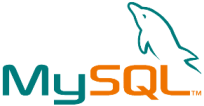
EMERGENCY PHP UPDATES
We will be applying a PHP update to the servers later this evening.
This will take the primary PHP install from v5.3.9 to v5.3.10 and will resolve a vulnerability that has been patched in the 5.3.10 release.
The vulnerability present in 5.3.9 allows for the possibility of remote code execution depending on how large numbers and arrays are used.
As this is a security issue we will be performing emergency maintenance between midnight and 3am (GMT).
There should be no interruption to service however, as the work is being done on components critical to PHP based sites, this period should be considered at risk.
The work will cause slightly higher than normal load on the servers and may involve a restart of the web server.
In the worst cast scenario (such as a failed compile) the installer will restore a backup of the current working configuration.
No module or configuration changes will be made to the PHP stack and scripts should notice no difference.
You can view the change log on the php.net site: http://php.net/ChangeLog-5.php



